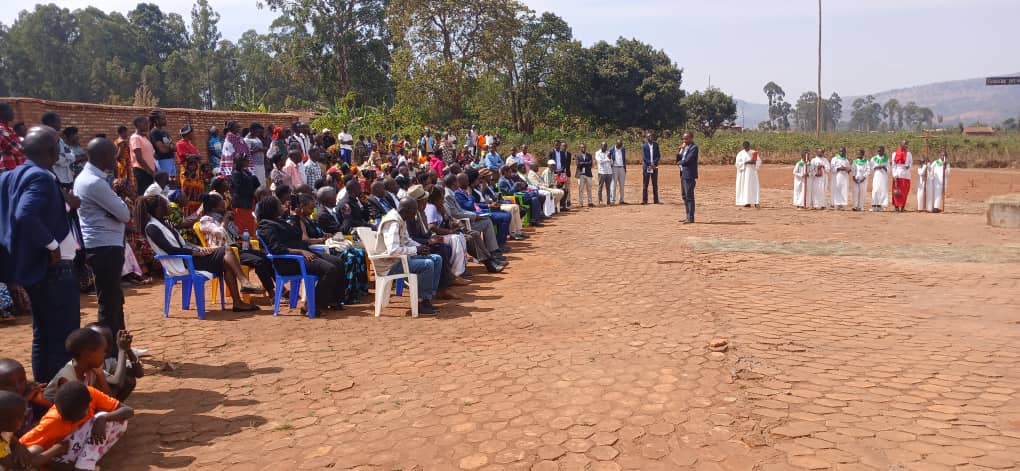Bugendana and Teza: 29 years later, survivors of the massacres described as genocide demand truth and justice

SOS Médias Burundi
Gitega, July 28, 2025 – Twenty-nine years after the Bugendana and Teza massacres, in which 648 displaced persons and 90 tea factory workers were murdered, survivors and their associations continue to denounce impunity and Holocaust denial. During the commemorations, AC Genocide Cirimoso pointed the finger at the current regime and called on the UN to implement its own recommendations so that justice can finally be done for the victims.
Unlike its northern neighbor, Rwanda—where the 1994 genocide against the Tutsi is recognized by the UN—the small east African nation struggles to agree on the classification of the crimes that marked its recent history. These massacres, which anti-genocide groups and defenders of the rights of the Tutsi minority describe as genocide, remain a point of contention in a country where memories remain divided.
The Tutsi are demanding recognition of the genocide committed against them during the 1993 massacres, following the assassination of President Melchior Ndadaye, the first head of state from the Hutu ethnic group. For their part, Hutu associations and political parties, including Frodebu and the CNDD-FDD—a former Hutu rebellion that came to power thanks to the Arusha Peace Agreement of August 2000—are campaigning to label the 1972 massacres, which claimed the lives of a large number of members of this community, a « genocide against the Hutus. » In May 2022, President Évariste Ndayishimiye refused to endorse the National Assembly’s decision, which, based on a report from the highly controversial Truth and Reconciliation Commission (CVR), wanted to officially recognize the 1972 massacres as a genocide against the Hutus.
A commemoration under the banner of memory and a call for justice
During the commemorative ceremony held at the Bugendana site for displaced persons in the new province of Gitega (central Burundi) on Sunday, July 27, Father Vianney Nizigiyimana urged Burundians to reject revenge and promote peace.
But the survivors, through their representatives, expressed a profound sense of abandonment. Oswald Ntirampeba, head of the site, and Pascal Ntahonkuriye, president of the Bugendana Massacre Survivors Association, denounced the persistent precariousness : lack of access to basic social services and threats of eviction. They called for the site to be transformed into a « peace village » and demanded the opening of independent investigations.
« It is time for justice to do its work, » insisted Ntahonkuriye.
AC Genocide Canada denounces impunity and Holocaust denial
In a statement issued in Toronto on July 27, the association AC Genocide Canada, through its Secretary General Dr. Emmanuel Nkurunziza, recalled that these massacres had been classified as genocide against the Tutsi by the UN in a 1996 report (S/1996/682), while emphasizing that this recognition has never been endorsed by the Burundian government.
The organization denounced :
the impunity of the perpetrators, who reportedly continue to commit crimes in eastern DRC;
the moral and physical persecution of survivors by a regime described as « unpunished and unrepentant genocidal »;
the conflations that minimize the gravity of these crimes, considered a form of Holocaust denial;
The revisionist campaign led by the CVR, accused of distorting history by avoiding acknowledging the targeted massacres of 1996 and the genocide against the Tutsi in Burundi in 1972.
It calls on the UN to assume its responsibility by implementing the recommendations of its Commission of Inquiry and ensuring that justice is done.
A duty of remembrance and truth
Speaking on behalf of the district administration, Dieudonné Hakizimana discussed the country’s recurring crises, calling for lessons to be learned to build peaceful coexistence.
For his part, Professor Lothaire Niyonkuru, president of the AC Génocide Cirimoso association, pointed out the impunity that prevails in Burundi, particularly the CVR’s silence on this tragic episode. He warned against the resurgence of hate speech based on ethnic, religious, and regional themes, while the wounds remain raw.
According to survivors of this barbarity, the towns of Bugendana, Mutaho (Gitega), and Gihogazi (formerly in Karusi) were at the time under the control of the Hutu rebels of the FDD, an armed group that later became the CNDD-FDD party, now in power in the small east African nation.

